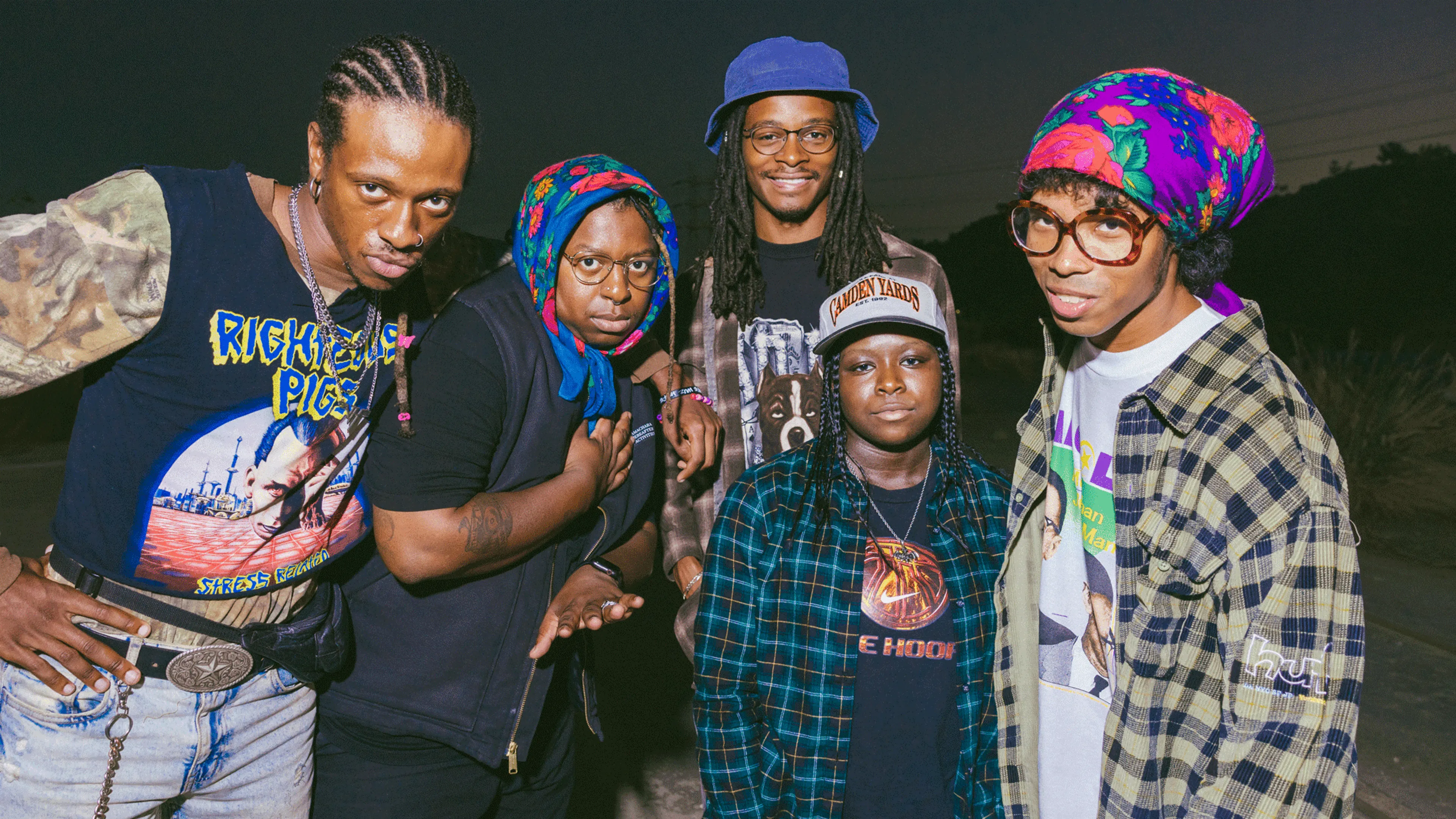Anaiah was born and raised in Los Angeles, a city of great wealth disparity, with notorious gang violence and historical racial tension. Growing up, he moved around a lot, staying with his mum or dad in different parts of the City Of Angels, providing insight into how the other half live.
He remembers living in suburbia, where “everyone was on some different ‘agenda’ when it came to who their neighbours were… and I say that in a sense that I started to understand racism early on”. Anaiah also spent time in areas he simply describes as “rough”.
No matter where he lived, though, he had music. As a youngster, Anaiah listened to a lot of reggae, dub and soul, but was eventually introduced to the heavier side of sound, from British post-punk to LA hardcore. Asked what drew him to the harder edges of music, he can’t recall as it happened so early in life, but laughs that he found it fascinating hearing how fast people could play.
At nine years old, Anaiah formed a band with his older brother Mikaiah called The Bots. Their scrappy, two-piece garage-punk received a lot of attention early on, and by the age of 12 he was drumming his way across America on Warped Tour. Throughout his teenage years, while his friends were navigating the hormone-ridden hellscape that is high school, Anaiah was playing Coachella and Glastonbury.
“Being that young and touring for that long with that band, I learned so much about the music industry, so much about touring… everything I know now I learned through being in that band,” he says. “As a kid, you go through the trials and tribulations of just growing up, but having to grow up in that setting was just different because I had expectations put on myself, and I didn’t know how to balance out the two. I don’t think any kid should have to go through that.”
Likening his experience to that of child actors, Anaiah admits he grew up faster than he would have liked, but wouldn’t change a thing, as it’s given him the education and grounding in how music actually works, which he can put into ZULU.
